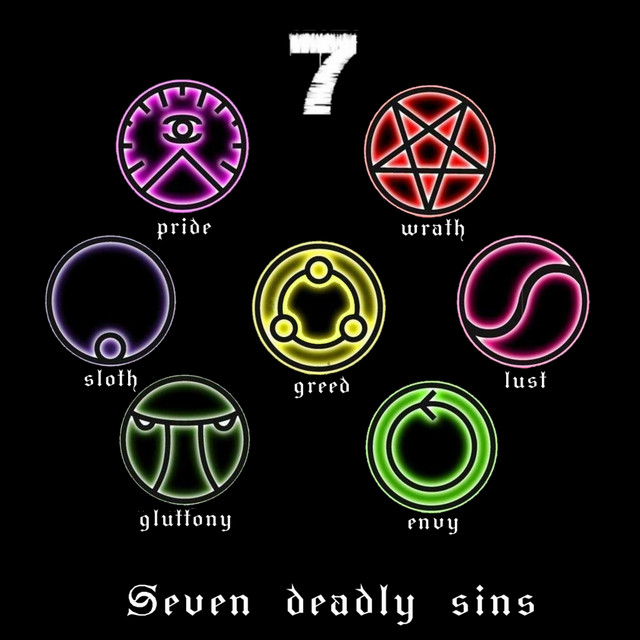Sin is fatal. “For the price of sin is death, but the free gift of God is everlasting life in Christ Jesus our Lord,” states Romans 6:23. But why do some transgressions have the moniker “Seven Deadly Sins”? Let’s examine this well-known adage’s historical and biblical background.
Definition of Sin
Sin is a “transgression of the law of God” and “an offence against the religious or moral law.” According to biblical language, sin may be broken down into three different categories: breaking the law, harming one’s interpersonal relationships, and, most fundamentally, rebelling against God. Sin is the breach of the law, thus whoever commits sin also violates the law (1 John 3:4 KJV). The concept of “missing the mark” or turning away from God can also be used to describe sin. So, to “reorient” yourself towards God and obey His commands is to practice repentance.
What are the 7 Deadly Sins?
The seven deadly sins are seen as types of sin, according to Pope Gregory I in the late sixth century:
- Pride
- Envy
- Wrath
- Gluttony
- Lust
- Sloth
- Greed
Does the Bible Mention Deadly Sins?
The Bible is allegedly where the fatal seven are mentioned. Each of the seven is a sin, although this list is not found in the Bible. This classification of sins dates back to the year 400. A monk from the fourth century named Evagrius Ponticus listed eight dangers to avoid. Pope Gregory, I modified the list to seven items two centuries later. One of these seven classifications may be used to classify almost all sins. According to Isaiah 14:13–14, each of the seven is connected to conceit and selfishness, which are seen as the main sources of all sin.
The Seven Deadly Sins: Definition and Counterpart
Christians may fight the seven deadly sins in their life by exhibiting godly traits and developing the fruit of the Spirit.
“But the fruit of the Spirit is love, joy, peace, patience, kindness, goodness, faithfulness, gentleness, self-control; against such things, there is no law.” (Galatians 5:22-23)
- Pride. Definition: the quality or state of being proud: such as inordinate self-esteem, conceit
Counterpart: Humility, meekness, love God, love others, appropriate self-worth
- Envy. Definition: painful or resentful awareness of an advantage enjoyed by another joined with a desire to possess the same advantage
Counterpart: love, joy, thankfulness, compassion, satisfaction
- Wrath. Definition: strong vengeful anger or indignation
Counterpart: peace, gentleness, self-control
- Gluttony. Definition: excessive indulgence (typically food or drink)
Counterpart: self-control, contentment, patience, discernment
- Lust. Definition: intense or unbridled (sexual) desire, lasciviousness
Counterpart: love, unselfishness
- Sloth. Definition: disinclination to action or labour, spiritual apathy, and inactivity
Counterpart: perseverance, diligence, servanthood
- Greed. Definition: a selfish and excessive desire for more of something (such as money) than is needed (material goods)
Counterpart: Generosity, kindness
Where in the Bible are the Seven Deadly Sins mentioned?
These seven particular sins are discussed throughout the entirety of the Bible. The four deadly sins are mentioned in Exodus, Deuteronomy, Proverbs, and Galatians, among other places in the Bible.






